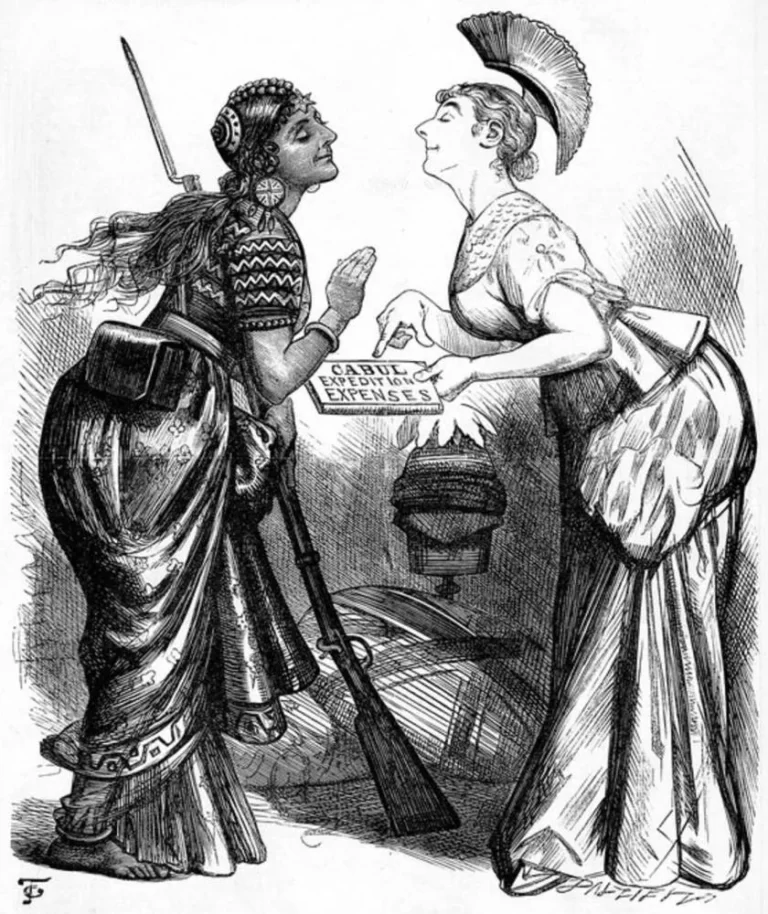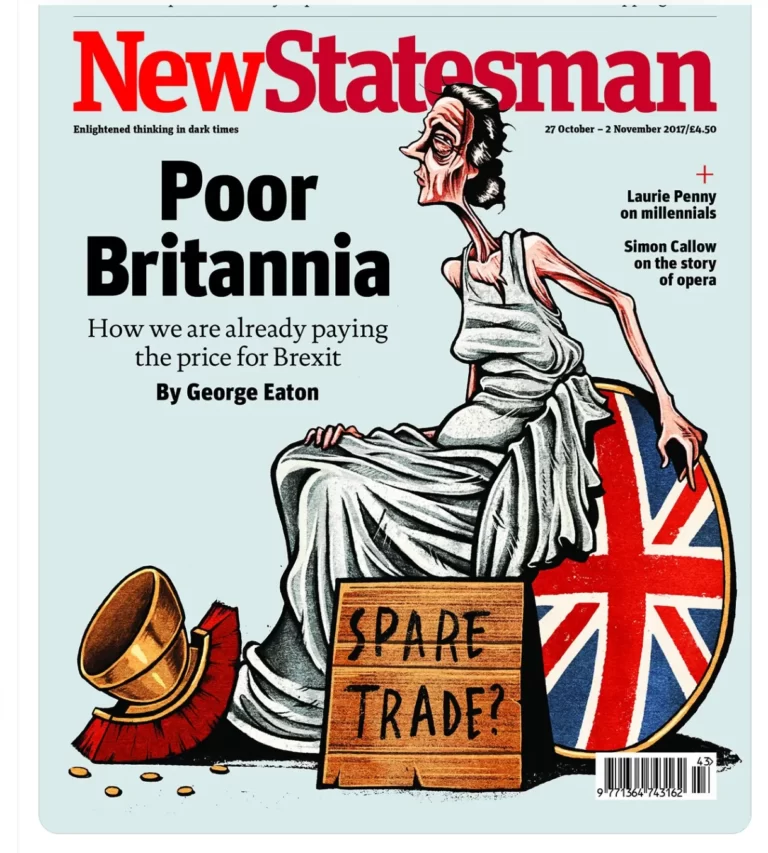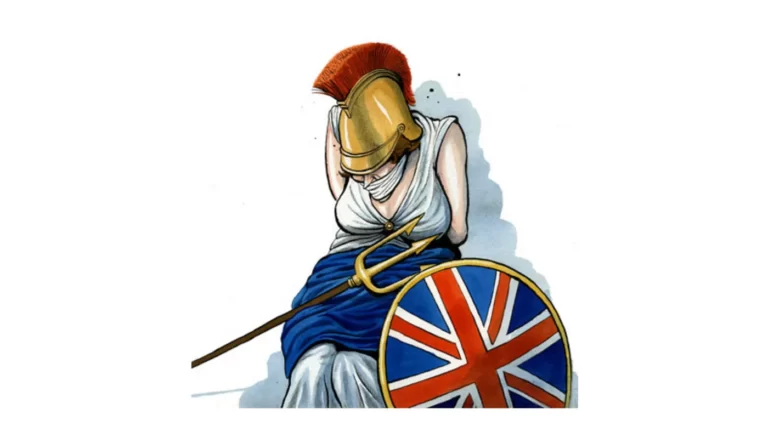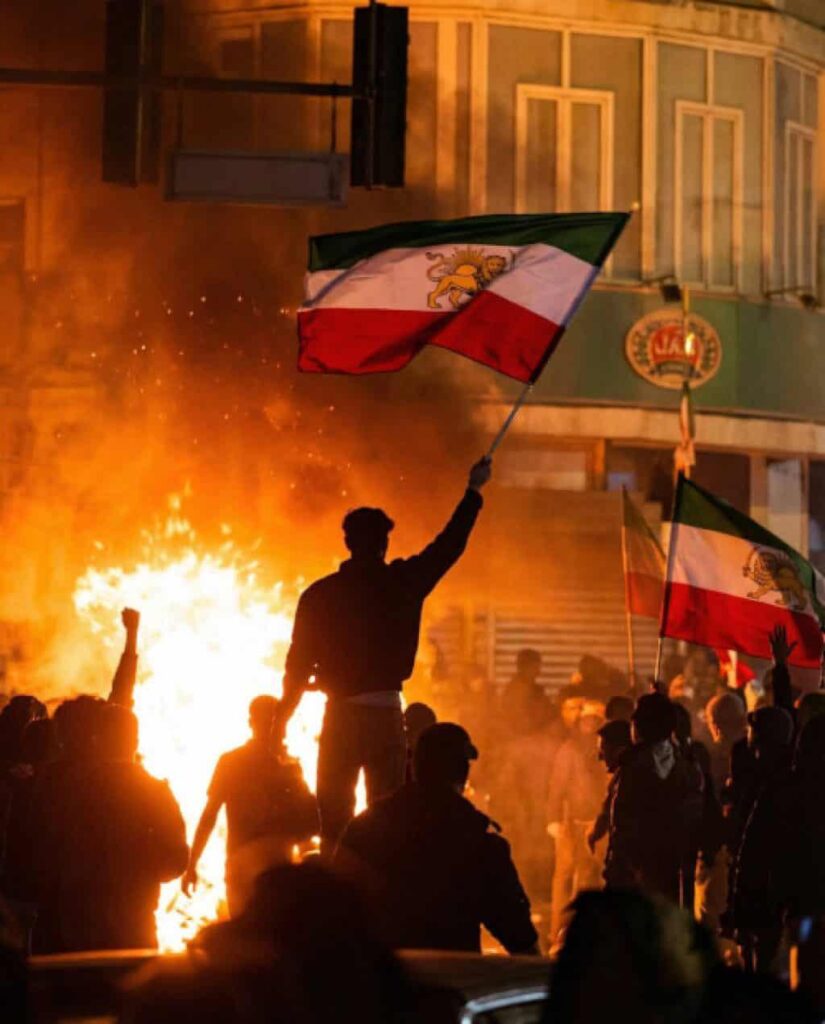At the Bank of England Museum Britannia is described as a symbol of British strength. She is the personification of Britain that dates to the Roman era, typically shown with a trident, a shield and a warrior’s helmet. Today we mostly recognise her on our bank notes and coins. She is calm, poised and commanding. She was not always so.

Britannia throughout the ages has been personified to represent the deepest aspirations, what we want to envisage ourselves to be as Britons. Roman emperors like Antoninus Pius (AD 138 -161) depicted her as a fierce warrior perched on a wall safeguarding the furthest limits of the Roman empire. In the 1750s she became the proud freer of slaves, in portraits where she sits next to a tamed lion, as black slaves kneel before her in gratitude. In the 1800s she was depicted negotiating with what was British India over who would pay for the Afghanistan war. Skip a few centuries and we see portrayals of a post Brexit Britannia — aged, destitute, and looking for some ‘spare trade’.

Jörg Schindler, a journalist for Germany’s premier newspaper Spiegel, wrote extensively on what he saw, namely ‘The UK faces a steep climb out of a deep hole’. He essentially sculpted a narrative that still somewhat haunts us today that of a ‘broken Britain’. A Britain divided by class, north and south, ethnicities and along religious lines. British democracy was once lauded as a stable institution where the world’s money was safe, and stability prized. The last four years have seen that image badly tarnished.intent.

In the light of Schindler’s remarks, Prime Minister Rishi Sunak was probably what the nation required: stability. He has certainly done that. Sunak is not flamboyant, nor is he particularly smooth or charming like Blair, but to his credit he is brave, although seen as indecisive at times. He was brave to raise taxes and cut or limit public spending to get inflation under control. He was brave in scrapping HS2. Yet, he is likely to face a massive defeat at the next general elections in 2024. On the red corner, Starmer is desperately trying to emulate ‘steady’ and ‘safe’ and has done a remarkable job of disciplining and sculpting the Labour leadership taking them away from the loons on the far left and soft Islamists in Labour heartlands.
The next election seems to be sizing up as a fight between ‘who will manage the economy better’ and ‘who will make us all feel safe again’. We want, as do all electorates, smaller taxes and better public services, and every politician hoodwinks us during election time to do exactly that. This time feels no different. While yet, there is something markedly different. The role of Prime minister in our country has become more presidential (since Blair), and power is more concentrated at №10 than ever before. We are a people that are increasingly voting for the best leader — whoever is seen to come out on top in the gladiatorial televised open mic verbal fisty-cuffs. The problem with this current trajectory is that it attracts narcissists says Dr Brian Klaas at the UCL School of European Languages Culture and Society. Narcissists crave power for powers sake, and they are often quick to abandon the moral ground to get ahead. Note how Johnson swung to appease his crackpot right-wingers while the entire Labour Party elected a man stuck in the 1980s and swung to the far left.

Douglas Adams once wrote of a planet on which humans are ruled by lizard overlords. There’s a paradox: the planet is a democracy; the humans hate and outnumber the lizards and yet the lizards always get elected. It turns out the humans vote for the lizards for a simple reason: “If they didn’t … the wrong lizard might get in.” Sunak is not a lizard, indeed he may not even be a narcissist, after all he took the poisoned chalice of leadership of the Conservative Party when he knew it was spiralling into chaos. It would have been far better for him to step back, watch his party implode and then step in when it was safe to do so, and reframe himself as the prodigal son and saviour! His principled approach maybe his undoing. The people don’t seem to want a manager — that’s what the markets and our institutions want. The cynic in me thinks the people want a rainmaker! But maybe, if I was to take a more optimistic view, the people aspire for Britannia to reappear, one fit for the 21st century.

Britannia represents a form of nationalism, but not all nationalism is dirty. What we need may not be the political nationalism of the Empire, where we subjugated, and colonised those that were different, or seen to be inferior; but rather a softer cultural nationalism that helps as a binding agent to build a sense of ‘commons’ amongst all our diversity. To quote Professor John Hutchinson, the political philosopher from the London School Economics (LSE), ‘cultural nationalism acts as a force for moral innovation, emerging at times of crisis, to form movements that offer new maps of identity based on historical myths, that in turn may inspire programmes of socio-political regeneration.’
Maybe our democracy needs a renewal.
If Hutchinson is correct, then maybe we need a sprinkling of cultural nationalism. Unless we, as a people, know what we stand for, we will always be in danger of being seduced by talented narcissists who seek the mandate to rule over us, and take us somewhere we have no desire to go. We need to hold our leaders to higher values, which clearly charts what we stand for, and where we want to be taken.
A leader that will inspire what it means to be British — steady, fair, disciplined, aspirational coupled with hardworking, influential, and strong. This new Britannia is no longer the commander of the seas, and a subjugator of foes, but rather a deity that brings unity in our diversity; one that oozes compassion; and is a protector of people, planet, and profit. A Britannia that is not white and blond, but a multi-racial confident powerful woman or/and a man who fights for fairness, cooperation, and the rule of law. ‘Rule Britannia’ need not conjure images of empire, but rather of progressive universal values — sustainability, and justice for all. Some idealism is necessary. A reimagination of Britannia might be what we need to rediscover our ‘true north’.



